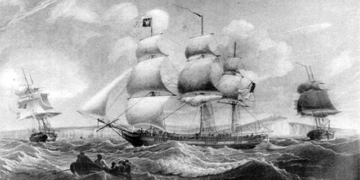Currently, the issue of copyright for Vietnamese literary and musical works on the Internet poses challenges for managers in both enforcement and regulation. This concern has intensified, especially with the upcoming enforcement of Vietnam’s intellectual property law starting July 1st.
Unresolved Issues
 The Music Copyright Protection Center has been officially operating since 2002, representing 830 musicians through authorization contracts and serving as the legal representative for musicians in 16 countries and territories worldwide. However, the Center’s influence has yet to extend into the online environment.
The Music Copyright Protection Center has been officially operating since 2002, representing 830 musicians through authorization contracts and serving as the legal representative for musicians in 16 countries and territories worldwide. However, the Center’s influence has yet to extend into the online environment.
According to statistics from the Center, at least 20 online music websites in Vietnam are currently violating copyright laws. This includes websites run by media agencies and students both domestically and abroad, containing a large volume of MP3 files available for free download. Such practices harm the normal exploitation of authors’ works, representing a serious violation of copyright law.
On the other hand, the Vietnamese Literary Copyright Center currently employs only five people. Their primary task has been to digitize major published works and store them in a digital database, awaiting the day they can be traded online. However, even without these digitized copies, numerous websites are already posting literary works for free, which are completely beyond the control of integrity and copyright regulations.
Who is Responsible?
The digital environment is characterized by an extensive sharing culture. Superficially, copyright regulations may seem to limit this advantageous trait, but in reality, they contribute to creating a healthier and more civilized online artistic environment. Moreover, at a broader level, such regulations serve as a motivation to encourage creativity and cultivate a refined artistic life.
While we lack clear regulations on charging fees, have not widely adopted electronic payment methods, and have limited capabilities to control electronic data, the issue of copyright on the Internet has so far focused on respecting moral rights, with little consideration for property rights. In essence, while authors cannot expect any income from online distributions, they can only hope that their creations are not distorted, edited, or misrepresented.
However, for listeners, as long as the law does not affect them directly, they are unlikely to voluntarily limit themselves. Listeners will continue to enjoy free works as long as possible. To claim their rights, musicians must take the initiative themselves. In civil relations, when a violation occurs, the aggrieved party must report it to the appropriate authority for resolution; no one actively seeks out violations.
Consequences for Artistic Life
A lack of awareness about copyright and responsibility towards authors and their works is a significant factor contributing to the issue of unauthorized reproductions. When readers are exposed to such works, the artistic life of our culture is quietly deteriorating.
In the current context, can we immediately shut down websites that violate copyright by posting literary and musical works? It seems unlikely, as it would infringe on the sacred rights of the Internet public—the right to access and enjoy works everywhere and anytime.
Previously, regulations regarding literary and musical copyright in Vietnam were formalized through decrees. However, with the enforcement of the Intellectual Property Law starting July 1, 2006, authors will have a solid legal basis to claim their rights.
Clearly, as authors’ self-awareness of their rights improves alongside legal advancements, we can confidently anticipate the sustainable development of our national literary and musical life. This is because the presence of intellectual property law will coincide with technological keys, electronic payment systems, and the legal consciousness of citizens.
Linh Thủy


















































